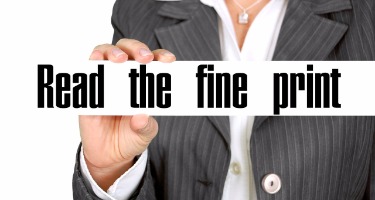Since 1996, Section 230 of the Communications Decency Act has provided critical protection from most liability for content posted by third parties to websites and other “interactive computer services.” This protection has been a primary factor in the growth of internet giants like Facebook, Twitter, and Google as they have reshaped the media and political landscape.
In recent years, the ubiquity of these social media companies in the country’s political dialogue has provoked a predictable backlash against Section 230. The backlash against Section 230 became more fierce in the aftermath of the 2016 presidential election, as people on both ends of the political spectrum criticized social media companies for their handling of political speech.
Not surprisingly, President Donald Trump has been at the center of these recent battles, as he relies on Twitter and Facebook to broadcast his messages and lashes out at any effort by those companies to edit or comment on his posts. After numerous threats, on May 28, 2020, the President issued an executive order – The Executive Order on Preventing Online Censorship – that seeks to increase federal regulations of online platforms who engage in “selective censorship” and limit the Section 230 liability protections available to those platforms. While the Executive Order specifically names Twitter, Facebook, Instagram, and YouTube, it applies to “any website or application that allows users to create and share content or engage in social networking, or any general search engine.”
The Executive Order states that online platforms that engage in selective censorship should not qualify for the liability protections in Section 230(c)(2)(A). “Selective censorship” occurs when platforms take “deceptive or pretextual actions” to censor viewpoints that the platforms disagree with, including enacting policies that “have the effect of disfavoring certain viewpoints” and flagging or removing content and accounts as inappropriate “with no warning, no rationale, and no recourse,” even when there was no violation of the platform’s terms of service.
The Executive Order seeks to force changes to federal interpretation of Section 230 in the following ways:
- Executive departments and agencies that apply Section 230 are ordered to limit liability protections for online platforms who engage in selective censorship.
- The Secretary of Commerce, in consultation with the Attorney General and acting through the National Telecommunications and Information Administration (NTIA), is to petition the Federal Communications Commission (FCC) to clarify:
- the circumstances under which an online platform “that restricts access to content in a manner not specifically protected by” Section 230(c)(2)(A) can lose the liability protections in Section 230(c)(1);
whether actions can be in “good faith” if they are “deceptive, pretextual, or inconsistent with a provider’s terms of service,” or “taken after failing to provide adequate notice, reasoned explanation, or a meaningful opportunity to be heard;” and
any regulations proposed by the NTIA that would further the Executive Order’s policy.
- The head of each executive department and agency is to review spending for federal marketing and advertising on online platforms and review laws that restrict the platforms’ “receipt of advertising dollars.” The results of the review are to be reported to the Director of the Office of Management and Budget and the Department of Justice so the “viewpoint-based speech restrictions” of each online platform can be considered to determine whether government speech on the platform is problematic “due to viewpoint discrimination, deception to consumers, or other bad practices.”
- The White House is to submit public complaints of online censorship made on its “Tech Bias Reporting tool” to the Department of Justice and the Federal Trade Commission (FTC). The FTC is to use the complaints to determine whether an online platform has engaged in unfair or deceptive acts or practices by taking actions that are contrary to how the platform publicly represents its censorship policies.
- The Attorney General is to establish a working group that will consider “potential enforcement of State statutes that prohibit online platforms from engaging in unfair or deceptive acts or practices” and “develop model legislation” for States that do not have such statutes.
The United States Supreme Court has never weighed in substantively on Section 230, and how it interprets the law and its protections in the coming years will be critical to the future of internet speech. If the changes set forth in the Executive Order are indeed implemented by federal agencies, it is certain to draw legal challenges from web site operators and industry groups. The text of Section 230 is quite clear, and since 1996 courts have been remarkably uniform in interpreting that text to provide the broad immunity Congress intended. But it remains to be seen whether the high-profile attention the President has brought to Section 230 will result in any change in how courts interpret its protections.
In the meantime, web site operators should continue to apply their terms of service neutrally and consistently to all third-party content that is posted on their websites.





























